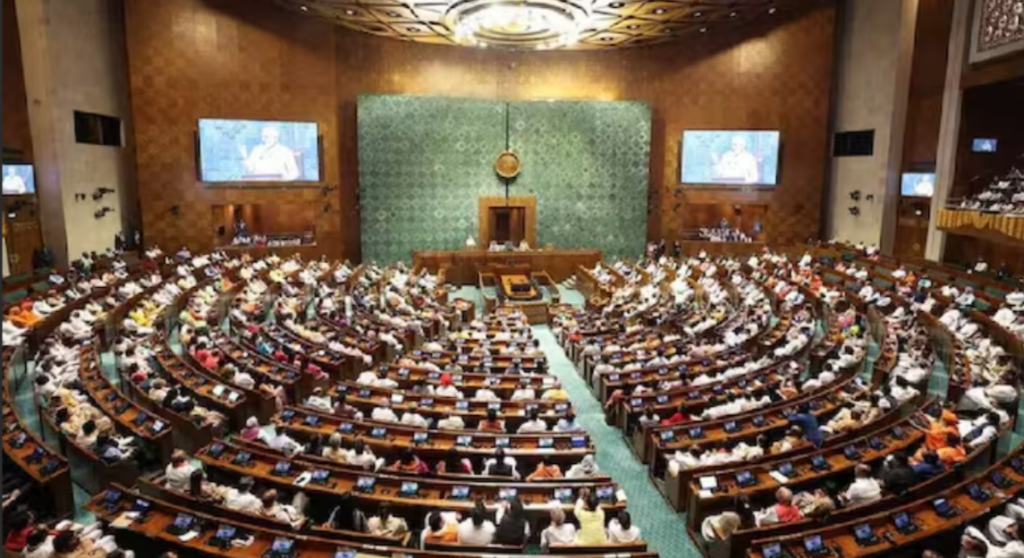Shreya Gupta
On April 2, 2025, the Waqf Amendment Bill 2025, also known as the UMEED Bill, was introduced in the Lok Sabha. This proposed legislation seeks to amend the Waqf Act of 1995, bringing significant reforms to the governance and management of Waqf properties in India. It aims to improve transparency, accountability, and efficiency in Waqf administration while addressing longstanding challenges within the system.
One of the significant reforms introduced by the Bill is the provision preventing a person creating waqf from affecting the inheritance rights of women and children in their family. Union Minister for Minority Affairs Kiren Rijiju highlighted this as a major progressive step. The Bill also includes a provision to ensure the inclusion of women members in Waqf Boards.
The Bill proposes the removal of Section 40 of the Waqf Act, which previously granted the Waqf Board the authority to declare any property as waqf land. Rijiju described this provision as “draconian,” stating that it had been misused, leading to several conflicts. He cited instances where properties belonging to Hindu temples, Sikh Gurudwaras, Christian families, and farmers had been declared as waqf lands.
Among other notable amendments, the Bill seeks to apply the Limitation Act, 1963, to waqf properties from the commencement of the amendment, with the objective of reducing prolonged litigation. Additionally, following the recommendations of the Joint Parliamentary Committee (JPC), the Bill proposes that disputes related to the encroachment of government properties by waqf lands will be decided by an authority higher than the District Collector, as notified by the state government. It also prohibits the creation of waqf lands in areas covered under Schedule V and Schedule VI of the Constitution to safeguard tribal rights.
Moreover, the Bill revises the composition of Waqf Tribunals. While the initial draft proposed reducing the tribunal’s members to two, the final Bill, after incorporating JPC recommendations, retains the three-member composition. Another critical change allows for appeals to the High Court against the decisions of Waqf Tribunals, a provision absent in the current Act, which only grants the High Court limited revisional powers.
However, the Bill faced strong opposition from Congress MP Gaurav Gogoi, who labeled it as an attack on fundamental rights, including the right to freedom of religion. He questioned the removal of the ‘waqf-by-user’ provision, which had been recognized by courts. He also criticized the amendment for limiting the number of women in the Waqf Board to two, whereas the 1995 Act permitted more than two women to be appointed.
Gogoi expressed concerns that the Bill would negatively impact many ancient waqf properties, including graveyards, which lack documentation despite their long-standing existence. He accused the government of attempting to spread fear among minorities and creating divisions within society. He described the Bill as an attack on constitutional principles and an effort to weaken the rights and dignity of the minority community.
According to him, the legislation was designed to dilute the Constitution, defame minorities, and create social unrest. Rijiju clarified that the Bill is prospective in nature and will not have any retrospective effect.
Addressing concerns surrounding the removal of the ‘waqf by user’ provision, Rijiju stated that properties belonging to Masjids, Dargahs, or other religious institutions, which have already been registered, will remain unaffected. He emphasized that the legislation does not intend to confiscate anyone’s property or rights. Additionally, the Bill includes a provision that waqf-by-user properties registered before the commencement of the amendment will remain as such, except those that are in dispute with the government.
Rijiju reassured that pending disputes in courts regarding waqf properties will not be impacted by the Bill, as judicial matters cannot be altered through legislative action. He also asserted that the Bill does not interfere with religious practices and is only focused on the management of waqf properties. Dismissing allegations that the Bill seeks to seize Muslim religious properties, he reiterated that its primary objective is to improve the administration of these properties.
Furthermore, he addressed concerns about the inclusion of non-Muslims in Waqf Boards, arguing that since the Board is a statutory authority dealing solely with property management, religious exclusivity in its membership cannot be insisted upon. Drawing a parallel, he questioned whether charity commissioners overseeing trust properties should belong to specific castes or religions.
As the discussion on the Bill continues in the Lok Sabha, its provisions and implications remain under intense debate.
Instagram: Click here.
LinkedIn: Click here.
For Collaboration and Business: info.desikaanoon@gmail.com

